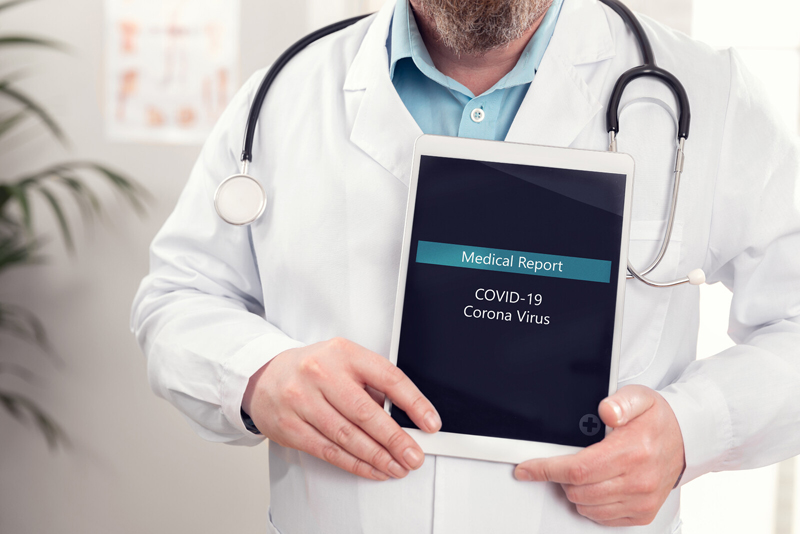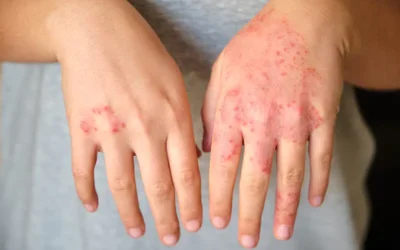As a medical billing company, we keep up to date with billing and coding changes and report on current and emerging healthcare issues, the latest of which is COVID-19. A new coronavirus (COVID-19) CPT code and description for testing came into effect on March 13, 2020. Accepted at the March 2020 CPT Editorial Panel meeting, the code is for use as the industry standard for reporting of novel coronavirus tests across the nation’s health care system. In a report announcing its release, the American Medical Association (AMA) noted that the new CPT code will help hospitals, health systems and laboratories in the United States to efficiently report and track testing services related to SARS-CoV-2.
New COVID-19 Code and Description for Testing
The new code in CPT Category I Pathology and Laboratory Code for Severe Acute Respiratory Syndrome Coronavirus 2 (SARS-CoV-2) is:
87635 Infectious agent detection by nucleic acid (DNA or RNA); severe acute respiratory syndrome coronavirus 2 (SARS-CoV-2) (Coronavirus disease [COVID-19]), amplified probe technique
This code became effective immediately on March 13, 2020. In addition to the above long descriptor, CPT also published the medium and short descriptors for this newly created code:
- Medium descriptor: 87635 IADNA SARS-COV-2 COVID-19 AMPLIFIED PROBE TQ
- Short descriptor: 87635 IADNA SARS-COV-2 COVID-19 AMPLIFIED PROBE TQ
Reporting CPT Code 87635
87635 will be included in the CPT 2021 code set in the Microbiology subsection of the Pathology and Laboratory section. Healthcare providers need to manually upload this code descriptor into their EHR system.
Newly created CPT code 87635 will streamline the reporting and reimbursement for COVID-19 testing. For Medicare claims, the Centers for Medicare & Medicaid Services (CMS) established two new Healthcare Common Procedure Coding System (HCPCS) codes for coronavirus testing. HCPCS code U0001 is intended for use by CDC testing labs to test patients for SARS-CoV-2 and to track new cases of the virus. HCPCS code U0002 is used by labs to report non-CDC lab tests for SARS-CoV-2/2019-nCoV (COVID-19).
The AMA has clarified that 87635 will be a child code under parent code 87471. The AMA’s CPT Assistant on Coronavirus provides the following additional clarifications on reporting 87635:
- Check third-party payer to determine their guidelines regarding applicability for retroactive billing and reimbursement
- If the test for COVID-19 is performed, the appropriate code to report (CPT or HCPCS) depends on the payer to which the claim is being submitted. Both CPT and HCPCS codes should not be reported on the same claim.
- Code 87635 is for the detection of SARS-CoV-2 (COVID-19) and any pan-coronavirus types or subtypes, and it can be reported with tests from multiple manufacturers using the stated technique. Code 87635 does not require reporting of an additional CPT code for this service.
- The other CPT codes that state coronavirus in their descriptor (87631, 87632, 87633, 0098U, 0099U, 0100U) should be used as follows:
- Codes 87631, 87632, and 87633 to report nucleic acid assays that detect multiple respiratory viruses in a multiplex reaction (ie, single procedure with multiple results).
- Proprietary laboratory analyses (PLA) codes 0098U, 0099U, and 0100U to identify multiple types or subtypes of respiratory pathogens.
- There are no known restrictions on the reporting code 87635 if performed as a separate assay, with code 87631, 87632, 87633, 0098U, 0099U, or 0100U. Codes selected should accurately describe the service provided.
- CPT reporting guidelines for microbiology codes state that when separate assays are performed on multiple specimens, modifier 59 should be used to indicate that the results represent the separate services performed. If the lab needs to test multiple separate specimens for the same virus, on the same patient, on the same day, report code 87635, Infectious agent detection by nucleic acid (DNA or RNA); severe acute respiratory syndrome coronavirus 2 (SARS-CoV-2) (Coronavirus disease [COVID-19]), amplified probe technique, and a second unit of code 87635, appended with modifier 59, Distinct Procedural Service.
The SARS-CoV-2 Test
The SARS-CoV-2 Test is meant for the qualitative detection of SARS-CoV-2, the virus that causes COVID-19 disease, in nasopharyngeal and oropharyngeal swab samples from patients who meet COVID-19 clinical and/or epidemiological criteria for testing. The Food and Drug Administration (FDA) granted emergency use approval to Roche’s SARS-CoV-2 Test on March 13. Hospitals and reference laboratories can run this highly automated process on Roche Holding AG’s cobas 6800/8800 systems.
According to U.S. health regulators, this new coronavirus test will expedite the ability to test patients tenfold. Bloomberg reported that the 8800 system has the capability to test 4,128 patients a day, and the 6800 version can test as many as 1,440. The test is expected to overcome obstacles to patient testing during the pandemic outbreak to avoid a further spread of the virus at an early stage of infection
CDC’s Revised Guidance on Specimen Handling and Testing for COVID-19
On March 13, the CDC issued a revision to reflect a recommendation to collect and test a single upper respiratory nasopharyngeal swab (NP). Health care providers should notify local/state health department immediately of patients with symptoms indicative of COVID-19. This will allow public health staff to determine if the patient meets the criteria for testing for COVID-19. The health department will help providers collect, store, and ship specimens appropriately, including during after hours or on weekends/holidays. The guidance includes separate instructions for lower and upper respiratory specimens. The CDC recommends collecting and testing an upper respiratory nasopharyngeal swab (NP) for COVID-19 initial diagnostic testing. Sputum should be collected only for those patients with productive coughs.
Experienced US based medical billing service providers can help clinicians report the appropriate code on claim forms, which is critical to meet the needs of the CDC safety-monitoring programs and to track the specific testing performed. They can also ensure reporting CPT and HCPCS Level II codes to meet payer guidelines and receive appropriate reimbursement.




